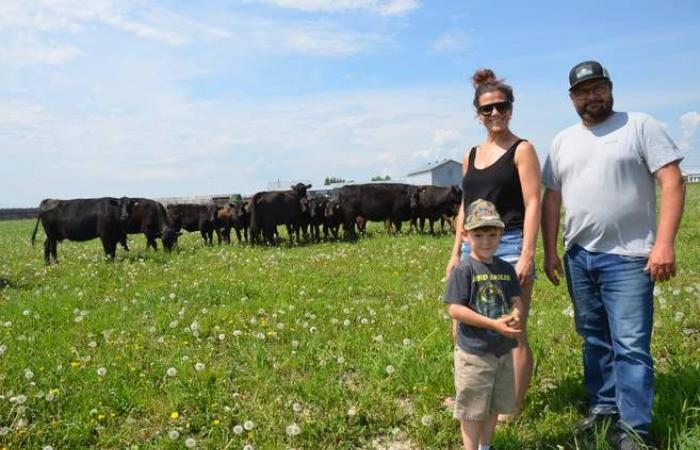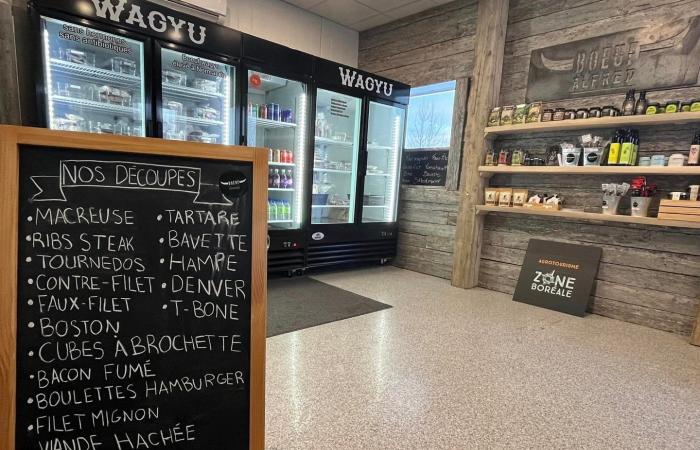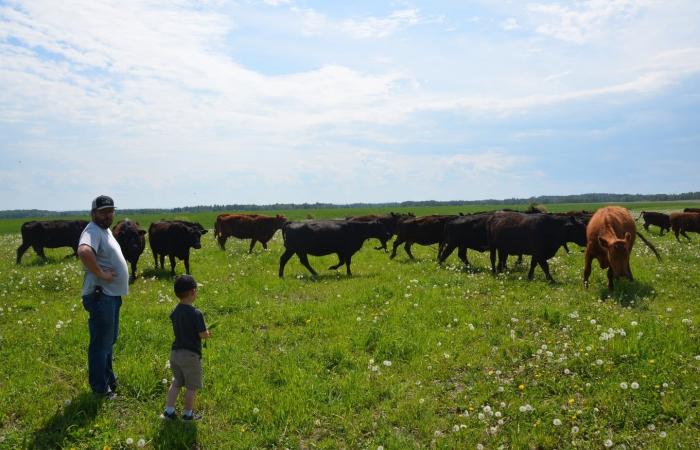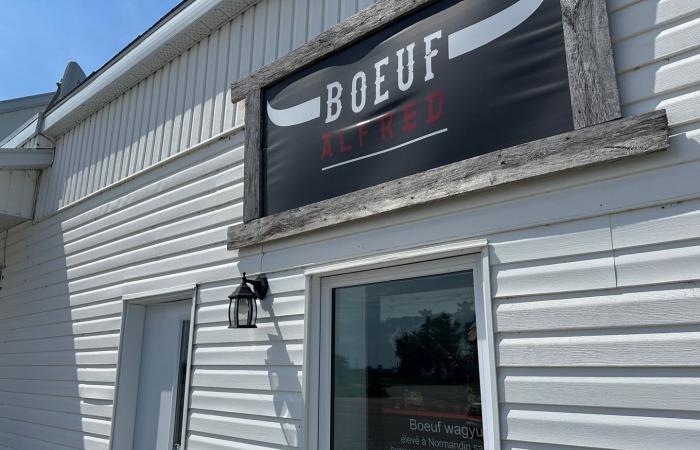On this scorching day, the cows are grazing quietly in the meadow with their little calves. At the edge of the path, Fabien Villeneuve places his hands near his face before making a noise to call them. “It seems like it’s too hot today. They don’t want to come see us,” he says with a broad smile.
Wagyu beef growing in Lac-Saint-Jean (Guillaume Roy)
We then move into the field to see our animals. Along the way, he explains that he started raising Wagyu beef eight years ago now. “At the beginning, I only sold the meat in markets and restaurants in Quebec and Montreal,” notes the producer, who decided to focus on this species of cattle to stand out on the market.
It was during a drunken evening in the middle of a pandemic that the idea of launching a kiosk near the farm, in Normandin, came up. “It was a brain bubble during a festive evening,” says Julie Coudé, Fabien’s wife and partner in the Bœuf Alfred company.
“We had demand to sell our Wagyu beef locally and we decided to get started, in the middle of a pandemic, when local purchasing exploded,” adds Fabien.
Wagyu calves grow more slowly and rearing lasts 6 to 8 months longer. (The Daily)
The idea quickly came to fruition. “We launched the idea in May and in June we opened the store,” notes Julie. Located on Avenue du Rocher, the store is a few hundred meters from the farm, where we find the majority of Fabien Villeneuve’s land (who also has land in Saint-Thomas-Didyme).
Growing
Initially, the entrepreneurial couple wondered what the response would be for customers for luxury meat, which sells for 80% more than conventional beef. Despite the higher price, the response was immediately positive. “People come here to buy our Wagyu beef, in the back of the row in Normandin,” rejoices Julie Coudé.
(Guillaume Roy/Le Quotidien)
“People had a taste for that, because they are coming more and more,” adds Fabien Villeneuve. There are a lot of new customers and they come back. Some because they rediscovered superior quality minced meat to what they have never eaten. » There is a wide range of cuts at Bœuf Alfred, whether tournedos, flank steaks or briskets, or fondue meat, filet mignon or tartare. The company also prepares bacon, sausage, smoked meat, pepperoni, pulled meats and prepared meals such as spaghetti sauce, pizza and lasagna, all products featuring beef. Wagyu.
“We are also specialists for smokers because we offer top quality pieces. We can produce all the cuts that customers ask us for,” notes Fabien, referring to the skirt, the picanha and the scoter for example.
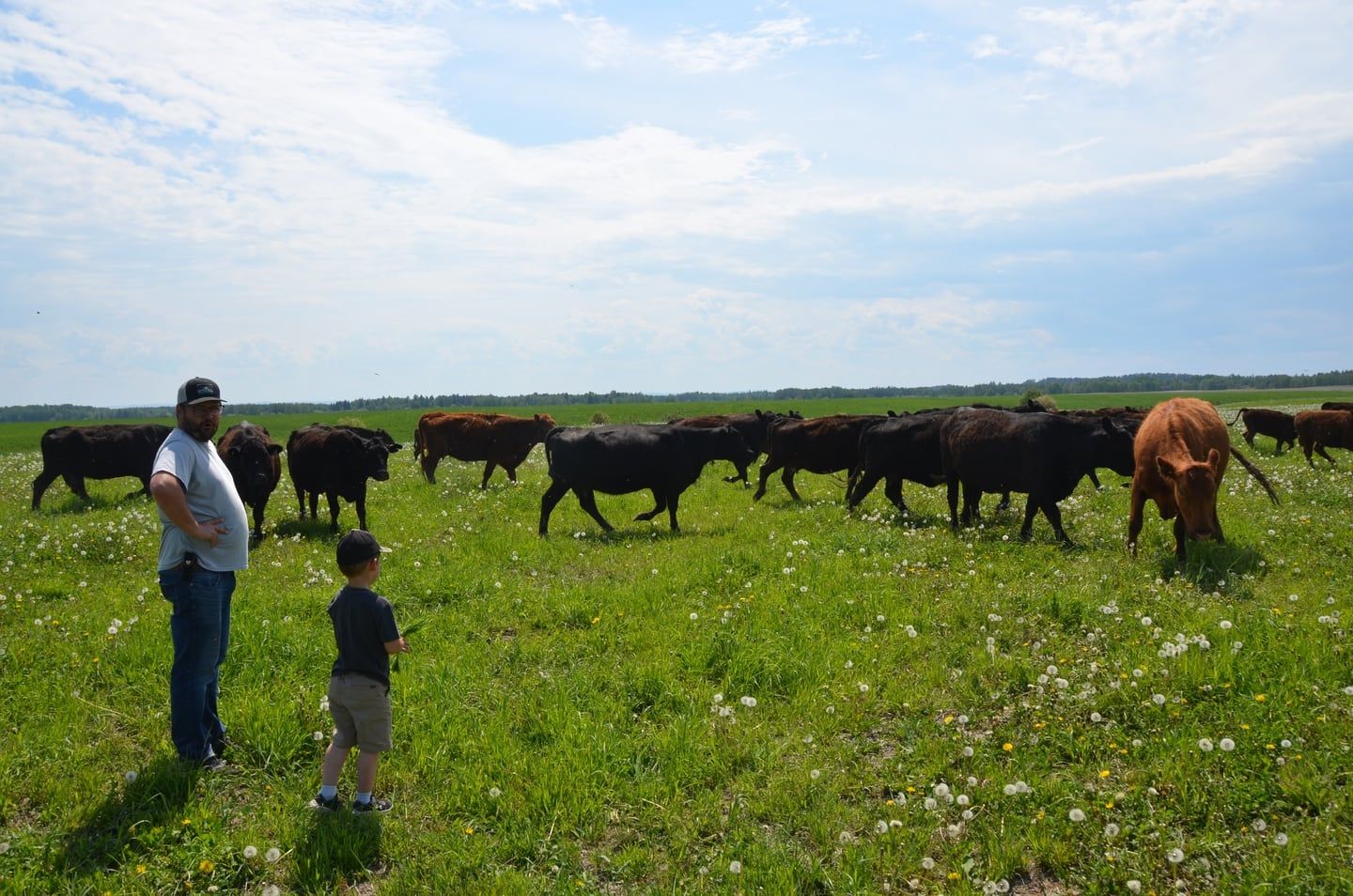
(The Daily)
A luxury snack
With the growth in traffic, the entrepreneurs decided to add a luxury snack bar outside the store for the summer, in order to highlight the Wagyu beef, but also the potatoes grown on their lands.
“Nearly 10,000 cyclists pass by the store and we wanted to offer them our specialties,” says Julie Coudé. Burgers, poutines, sausages, smoked meat made from Wagyu beef will therefore be in the spotlight this summer at Normandin. The cabin should open within two weeks.
With companies like Délices du Lac, Bergerie du Nord, Bouchard Artisan Bio cheese dairy and Mulane sweets in the area, the agrotourism offer is very attractive in the area and Bœuf Alfred gives visitors one more reason to do a tour. “It makes the sector even more attractive,” said Fabien Villeneuve, adding that many tourists from outside the region stop by the store.
High-end meat
Wagyu beef is recognized as a premium meat, particularly because the animal grows more slowly. Breeding lasts six to eight months longer than the usual 20 months with conventional breeds, notes Fabien Villeneuve. Additionally, bulls and breeding cows cost twice as much per head, at $15,000 to $20,000. With production costs, the meat sells for more, around 80% more than Angus beef, also raised on the farm and available at Bœuf Alfred.
To offer better costs and a better environmental record, the cattle producer, who raises 500 animals, is developing a slaughterhouse project in Saint-Prime with other producers in the region. “By reducing transportation costs, we will reduce the cost for the customer,” notes the producer, who sometimes has to go to Ontario to have his animals slaughtered.
Hybrid Wagyu
These are Wagyu-Angus hybrids that we find at Bœuf Alfred, because the owners judge that this choice allows them to optimize the taste without increasing costs excessively. 100% Wagyu is also fattier and must be cooked with more care, especially on the barbecue.
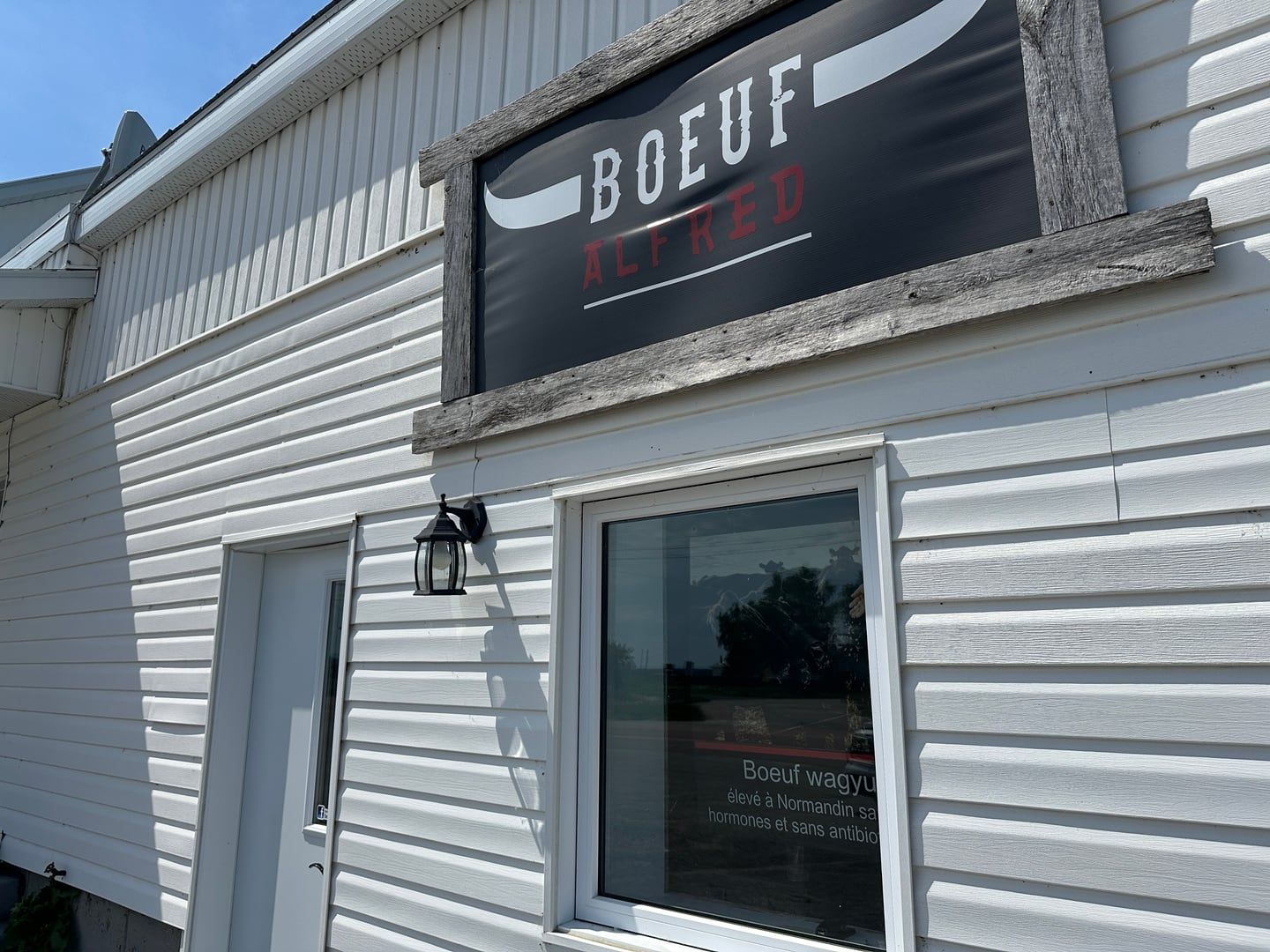
(The Daily)
A different taste
Does Wagyu beef really taste different? “Yes, it’s a finer, more delicate and more refined meat,” remarks Julie Coudé, who also had doubts at one time. “The meat is fattier and the fat tastes like butter,” she says, adding that the meat is also more marbled.
The fans seem satisfied, because they want more. “With the economic conditions, we expected a slowdown, but the customers are there,” says Fabien Villeneuve. When they come once, they quickly become regulars. »

